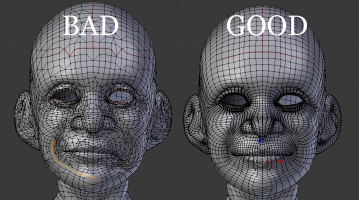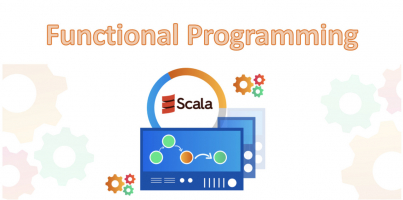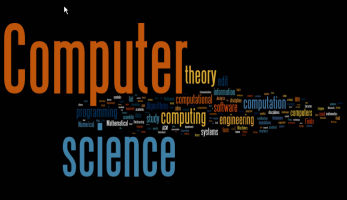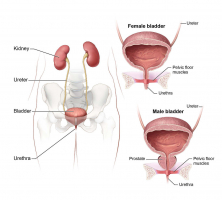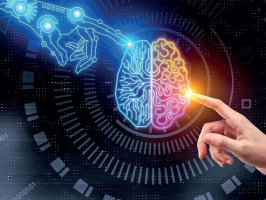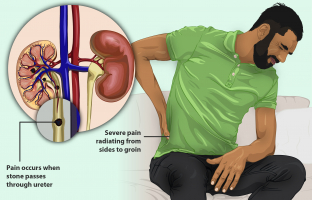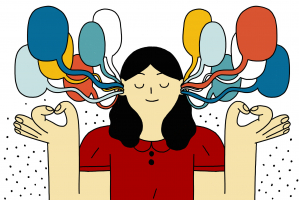Top 10 Best Books On Decision Making
Reading great books will help you make better decisions and create a better life. When you make better decisions, you can build a more meaningful career, ... read more...develop healthier relationships, and avoid the pain and regret that comes with bad decisions. The following are the best books on decision making to help you improve your decision-making skills.
-
Tavris and Aronson investigate the psychology of self-justification, or your tendency to justify everything people do and believe, in Mistakes Were Made. This book will teach you the dangers of self-justification, how to develop a healthy skepticism about the reliability of your memory and beliefs, and how to protect yourself from your psychology. It is regarded as one of the best books on decision making.
You will learn about the following topics:
- How people will do everything in their power to avoid cognitive dissonance
- Why does fraternity hazing foster strong social bonds?
- Why you shouldn't believe "experts"
- How to persuade a good man to do bad things
- Why and how do stereotypes form?
- How your memory is untrustworthy
- The Repressed Memories Myth
- How your stories are destroying your love life
- How to avoid the perils of self-justification.
Above all, Mistakes Were Made will help you better understand yourself and others. This expanded understanding of the human condition will help you make better decisions.
Author: Caroll Tavris and Elliot Aronson
Link to buy: https://www.amazon.com/Mistakes-Were-Made-But-Not-ebook/dp/B003K15IOE/
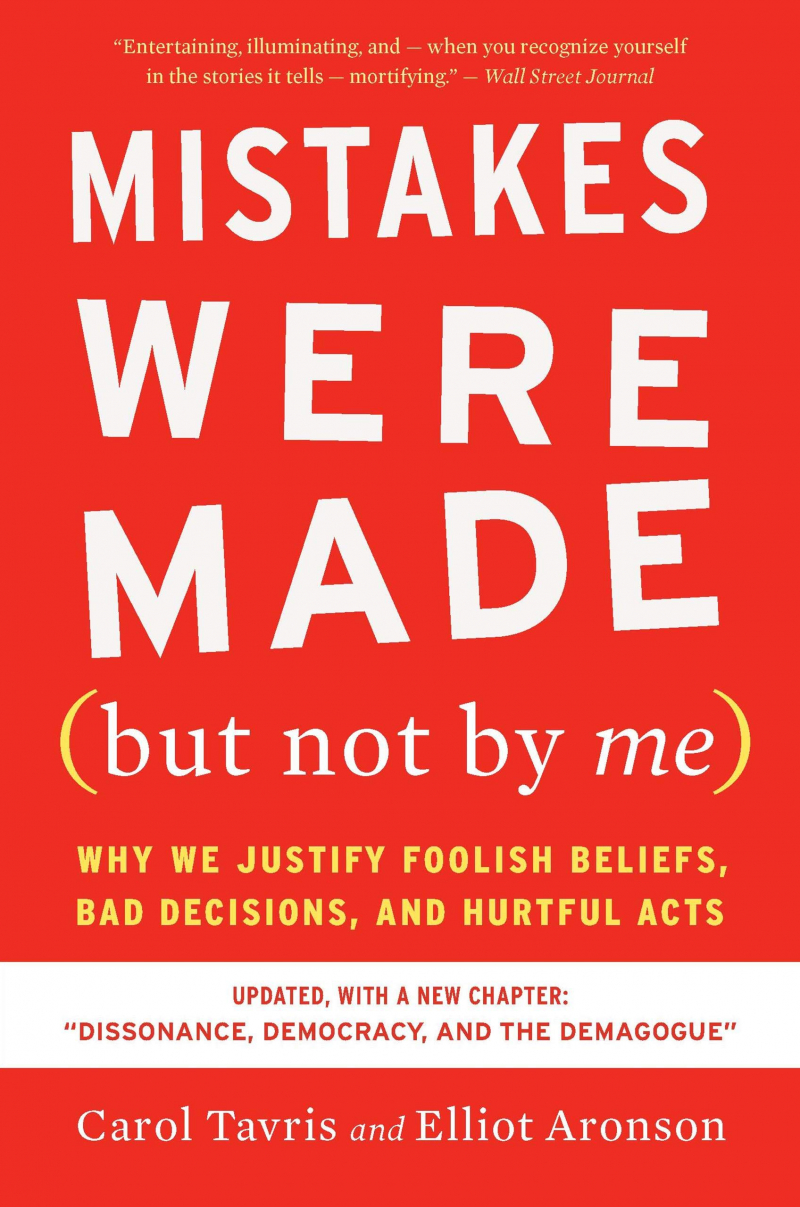
https://www.amazon.com/ 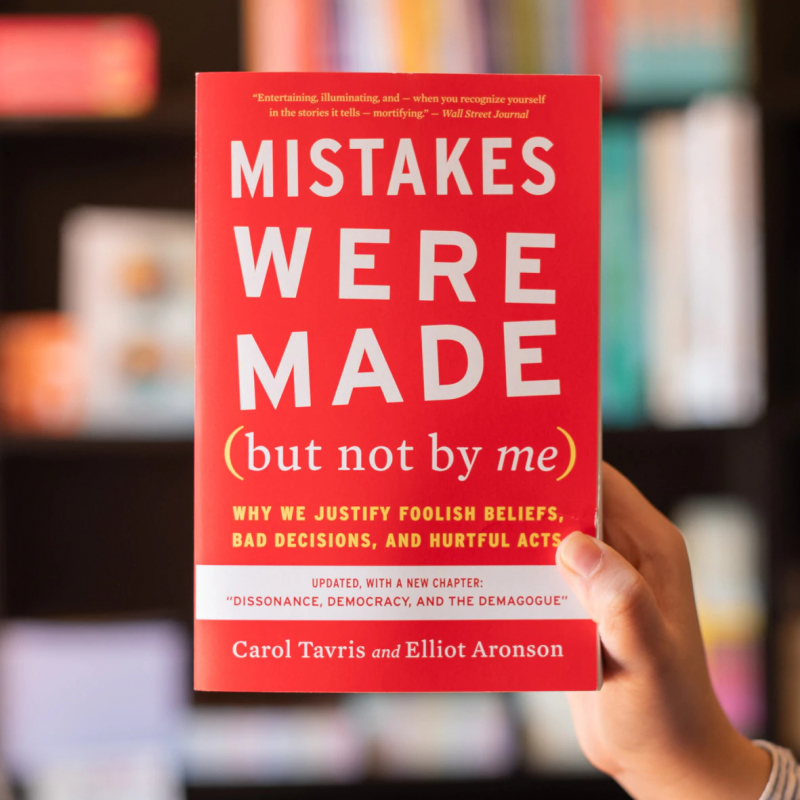
wardahbooks.com -
Daniel Kahneman, the renowned psychologist and Nobel Prize winner in Economics, takes you on a groundbreaking tour of the mind in his mega bestseller, Thinking, Fast and Slow, and explains the two systems that drive the way you think.
System 1 is quick, intuitive, and emotional, whereas System 2 is slower, more deliberate, and logical. The impact of overconfidence on corporate strategies, the difficulty of predicting what will make you happy in the future, the profound effect of cognitive biases on everything from stock market trading to vacation planning—all of these can be understood only by understanding how the two systems shape your judgments and decisions.
Kahneman engages the reader in a lively discussion about how you think, revealing where you can and cannot trust your intuitions and how you can reap the benefits of slow thinking. He provides practical and illuminating insights into how you make decisions in both your professional and personal lives—and how you can use various techniques to avoid the mental blunders that frequently get you into trouble. Thinking, Fast and Slow was named one of the ten best books of 2011 by The New York Times Book Review and won the National Academy of Sciences Best Book Award and the Los Angeles Times Book Prize. It is also regarded as one of the best books on decision making you should read.
You will learn about the following topics:
- System 1 is quick and intuitive, while System 2 is deliberate and logical.
- What distinguishes your experiencing self from your remembering self
- When to rely on your instincts
- Chance's role in your successes and failures
- What effect priming and anchoring have on your perceptions
If you've never heard of cognitive biases, this is the book for you.
Author: Daniel Kahneman
Link to buy: https://www.amazon.com/Thinking-Fast-Slow-Daniel-Kahneman-ebook/dp/B00555X8OA/
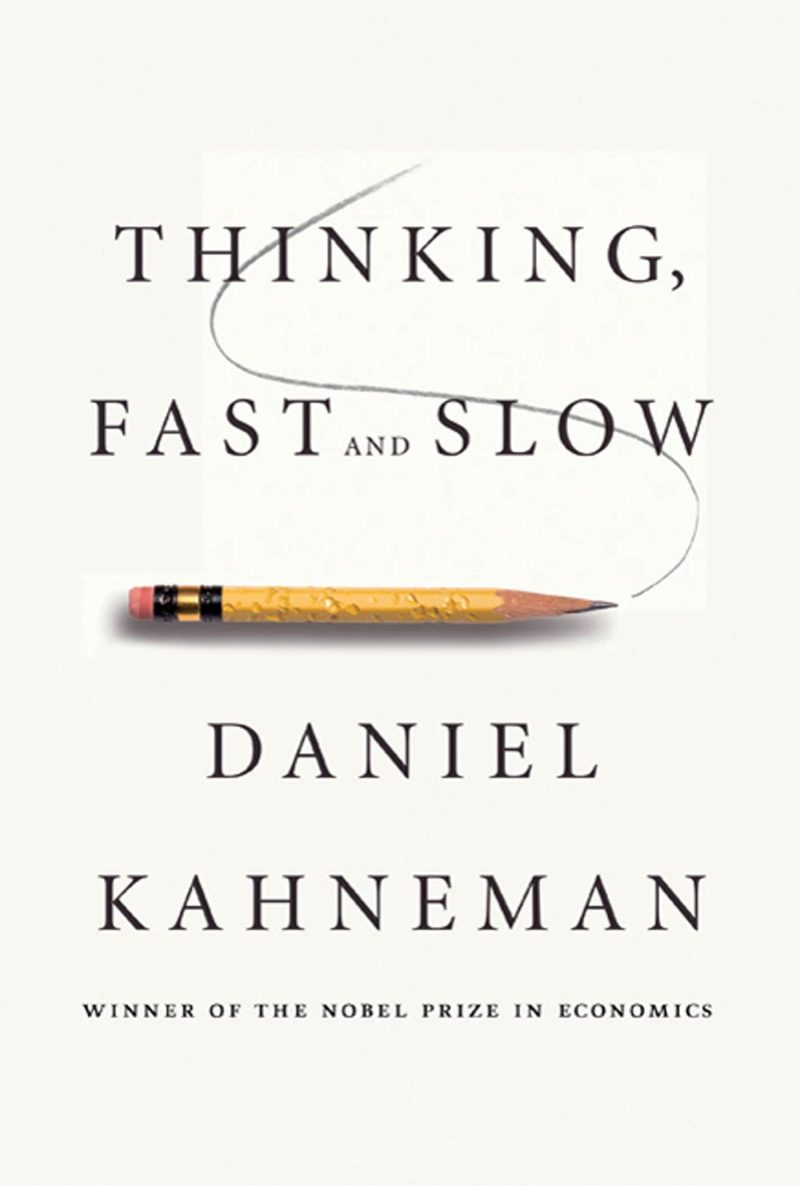
https://www.amazon.com/ 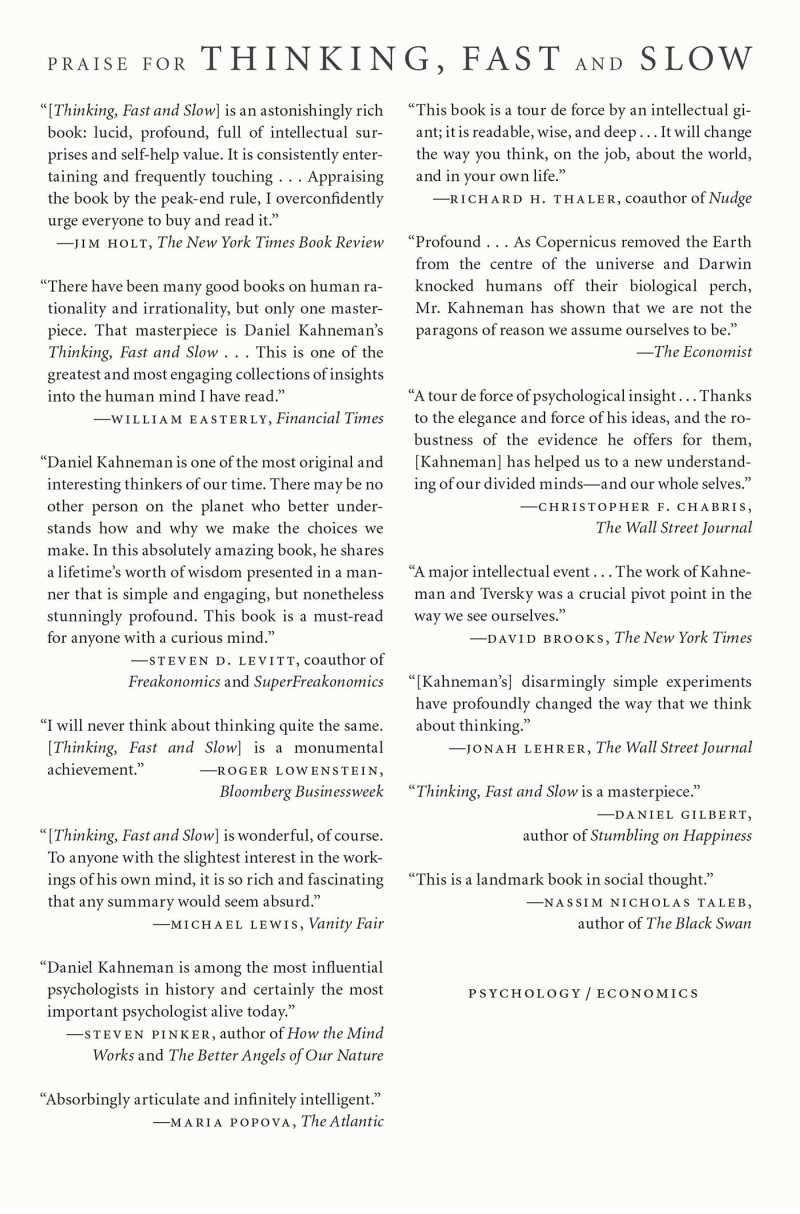
https://www.amazon.com/ -
The majority of the statistics you see and use are false. Darrel Huff reminds you of the fundamental principles of statistics in a fun and engaging manner, and teaches you how to avoid being misled by the numbers you see in the news and at work.
Although many of the examples in the book are delightfully dated, the warnings are timeless. Statistics are rife with opportunities for misapplication, from "gee-whiz graphs" that add nonexistent drama to trends, to "results" divorced from their method and meaning, to statistics' ultimate stumbling block—faulty cause-and-effect reasoning. Huff's tone is tolerant and amusing, but firm. He expects you to learn something useful from the book and begin applying it every day, much like a stern father.
You will learn about the following topics:
- How people deceive you with statistics
- Why obtaining a random sample is nearly impossible
- The dangers of using a “average”
- Statistics' one-sided bias
- How to Evaluate Statistics Correctly
Read How to Lie with Statistics for more information. You'll remember its simple lessons whether you encounter statistics at work, school, or in advertising. Huff begs everyone not to be terrified by numbers. Statistics, despite its mathematical foundation, is an art as well as a science. This book will improve your ability to understand, evaluate, and apply statistics in any field.
Author: Darrell Huff
Link to buy: https://www.amazon.com/How-Lie-Statistics-Darrell-Huff/dp/0393310728/
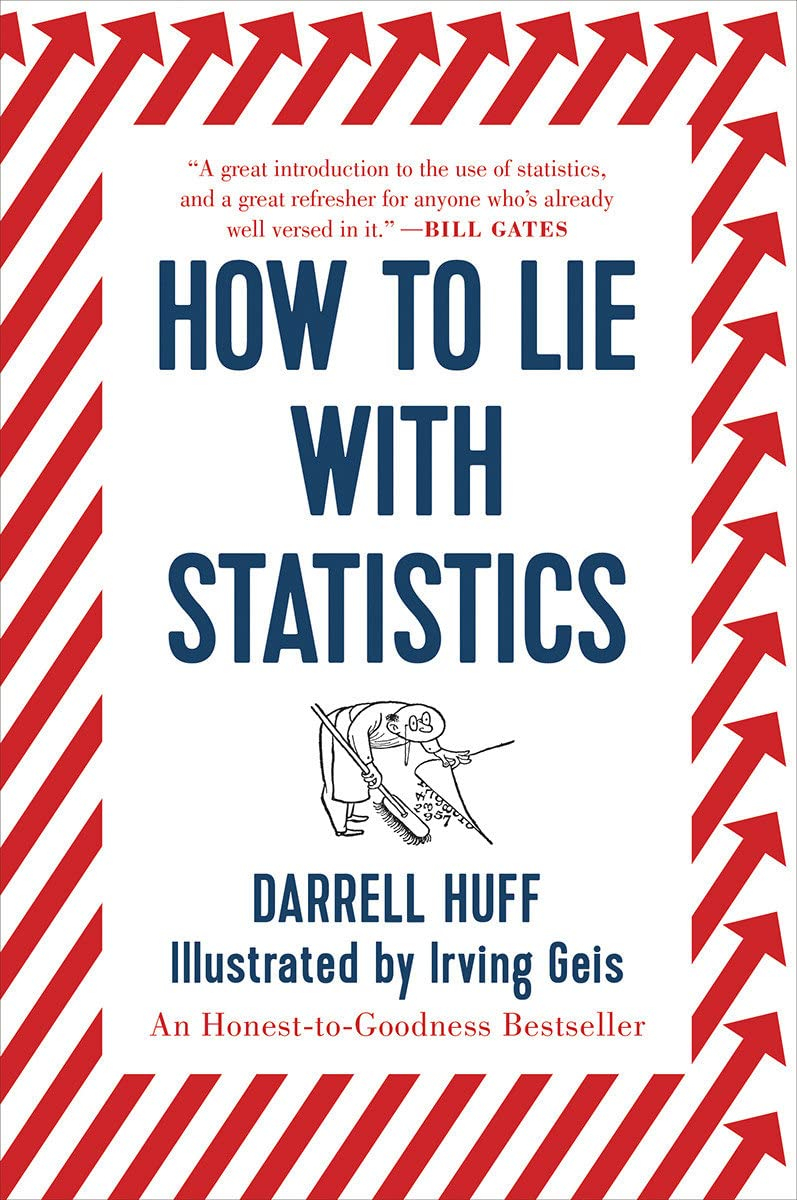
https://www.amazon.com/ 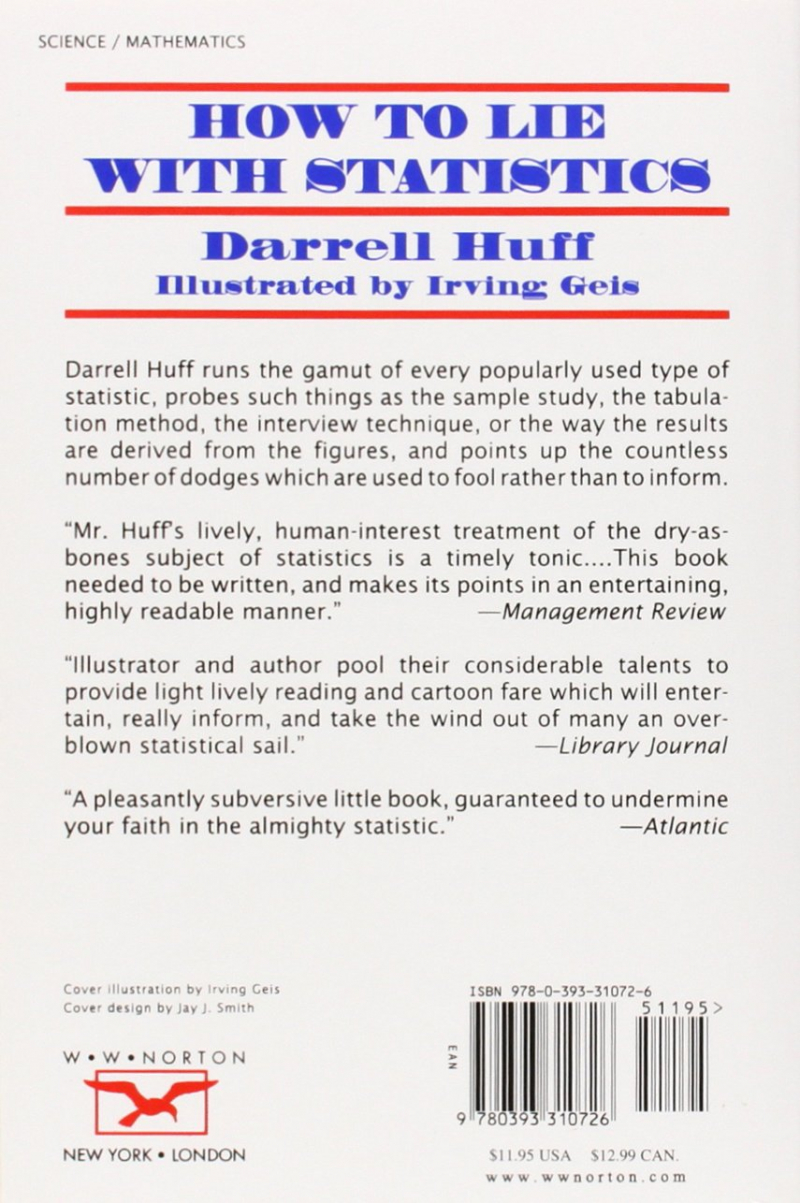
https://www.amazon.com/ -
This concise and thematic history will assist you in comprehending the biological, social, economic, and philosophical patterns of history. With this information, you'll be able to capitalize on the lessons that work while avoiding the ones that don't. The Lessons of History is considered one of the best books on decision making.
You will learn about the following topics:
- History's three biological lessons
- The relationship between freedom and equality
- How the most recent evolution of humans has been primarily social
- How the young and old interact with one another
- The goal of education
Will Durant received the Pulitzer Prize and the Presidential Medal of Freedom in 1968. (1977). He worked on his critically acclaimed eleven-volume series, The Story of Civilization, for more than fifty years (the later volumes were written in conjunction with his wife, Ariel). Durant was a long-time supporter of human rights issues such as the brotherhood of man and social reform, and his writing continues to educate and entertain readers all over the world.
Will and Ariel Durant were awarded the Pulitzer Prize for General Nonfiction in 1968 after spending over fifty years completing the critically acclaimed series The Story of Civilization. The Durants were awarded the Presidential Medal of Freedom in 1977. The Durants, champions of human rights and social reform, continue to educate and entertain readers all over the world.
Author: Will Durant and Ariel Durant
Link to buy: https://www.amazon.com/Lessons-History-Will-Durant-ebook/dp/B008GUIEYU/
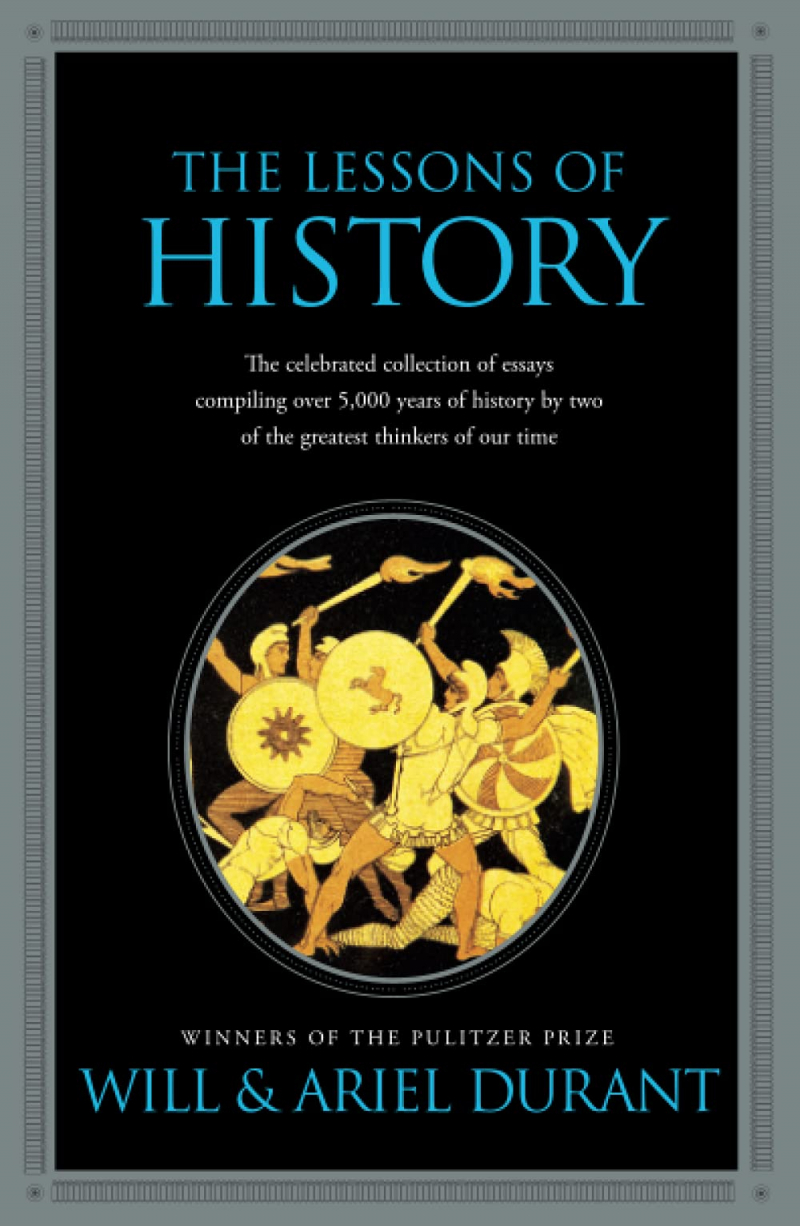
https://www.amazon.com/ 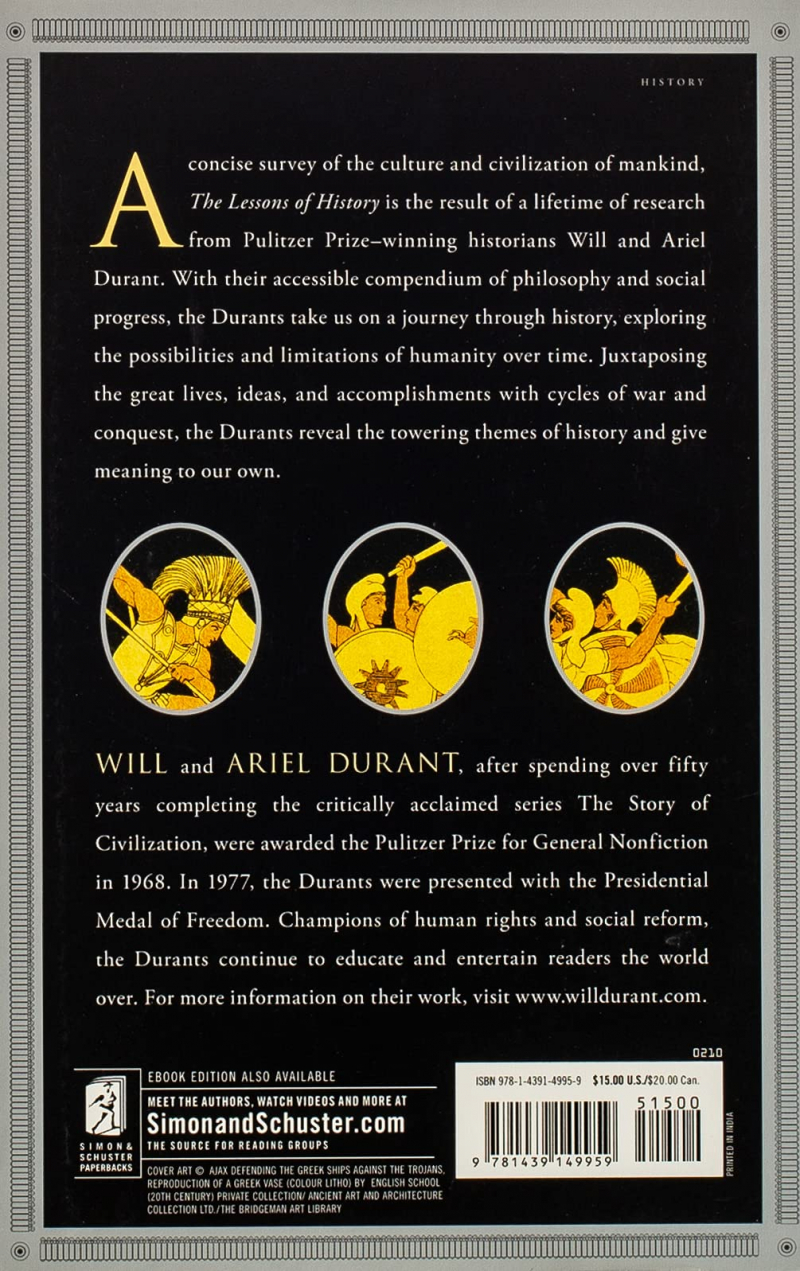
https://www.amazon.com/ -
Fundamentally, Poor Charlie’s Almanack: The Wit and Wisdom of Charles T. Munger by Charlie Munger is an encyclopedia of information on what it takes to be successful and great at whatever you want to do in life, all from a very successful and extremely well-read (and connected) 90-ish year old billionaire!
To be clear, this is not a book you can read quickly, but rather one you spend quality time with every day for a couple of months. You'll have a better chance of remembering all of Charlie's pearls of wisdom this way. One of the best parts of this book is the abundance of quotes from successful entrepreneurs, historians, and philosophers whose ideas and writings have stood the test of time.
The following are three key takeaways from the book:
- Charlie knows no wise people who do not read constantly. But it is more than just reading; one must collect ideas and act on them. Most people do not recognize ideas, and if they do, they are unsure what to do with them.
- Charlie does not believe in diversification when it comes to investing. His advice is to pick three good company stocks and invest accordingly. Interesting approach, given that most financial advisors usually advise the opposite.
- Self-pity is always counter-productive; it is the incorrect way of thinking. And avoiding it gives you a significant advantage over everyone else, or almost everyone else, because self-pity is a common response. You can also train yourself out of it.
You will learn about the following topics:
- Why focusing on a single discipline is a fatal mistake
- Why is avoiding mistakes preferable to pursuing victories?
- How learning from other fields can help you make better decisions
- Inversion's one-of-a-kind power
- Why you should avoid envy
- The psychology of human error
Author: Peter D. Kaufman
Link to buy: https://www.amazon.com/Poor-Charlies-Almanack-Charles-Expanded/dp/1578645018/
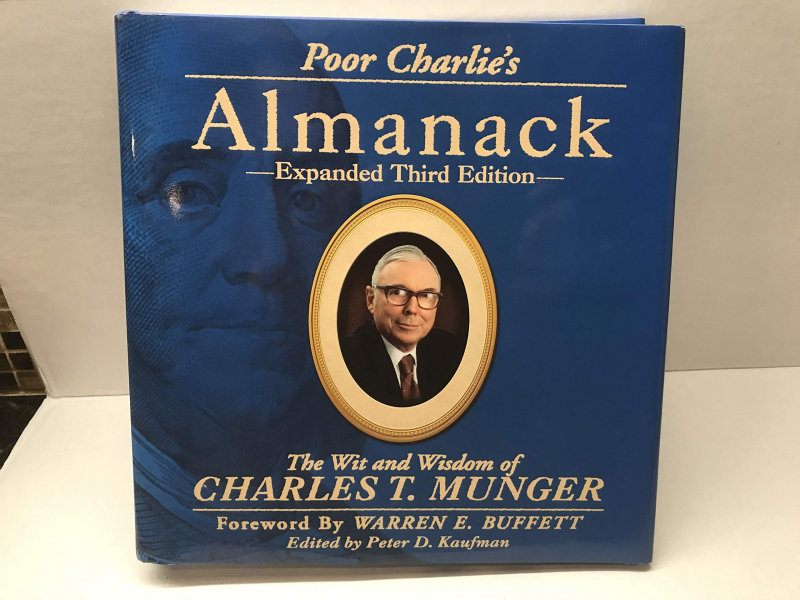
https://www.amazon.com/ 
https://www.amazon.com/ -
This is a life-changing collection of philosophical and spiritual thoughts from Marcus Aurelius, the former Roman Emperor. Meditations: A New Translation is based on Stoicism, a practical philosophy that encourages you to always keep your mortality in mind, to see things as they are, to reflect thoughtfully, focus on what people can control, and practice virtues such as generosity, honesty, and self-control.
Few ancient works have had the same impact as Marcus Aurelius' Meditations, written during his reign as Emperor of Rome (A.D. 161–180). It is one of the greatest works of spiritual and ethical reflection ever written, a series of spiritual exercises filled with wisdom, practical guidance, and profound understanding of human behavior. Marcus's insights and advice—on topics ranging from living in the world to dealing with adversity and interacting with others—have made the Meditations required reading for statesmen and philosophers alike, while generations of ordinary readers have responded to his straightforward intimacy. The Meditations are as relevant today as they were two thousand years ago for anyone who struggles to reconcile the demands of leadership with a concern for personal integrity and spiritual well-being.
Marcus's thoughts speak with new immediacy in Gregory Hays' new translation, the first in 35 years. Hays vividly conveys the spareness and compression of the original Greek text in fresh and unencumbered English. Marcus' insights have never been presented so directly and powerfully before.
This edition makes it possible to fully rediscover the thoughts of one of the most enlightened and intelligent leaders of any era, with an Introduction that outlines Marcus's life and career, the essentials of Stoic doctrine, the style and construction of the Meditations, and the work's ongoing influence.
You will learn about the following topics:
- How to Consider People
- Working with a goal
- The pressing need to act quickly
- The worth of improved perception
- The road is the impediment.
- How to behave in accordance with your values
Author: Marcus Aurelius
Link to buy: https://www.amazon.com/Meditations-New-Translation-Marcus-Aurelius/dp/0812968255/
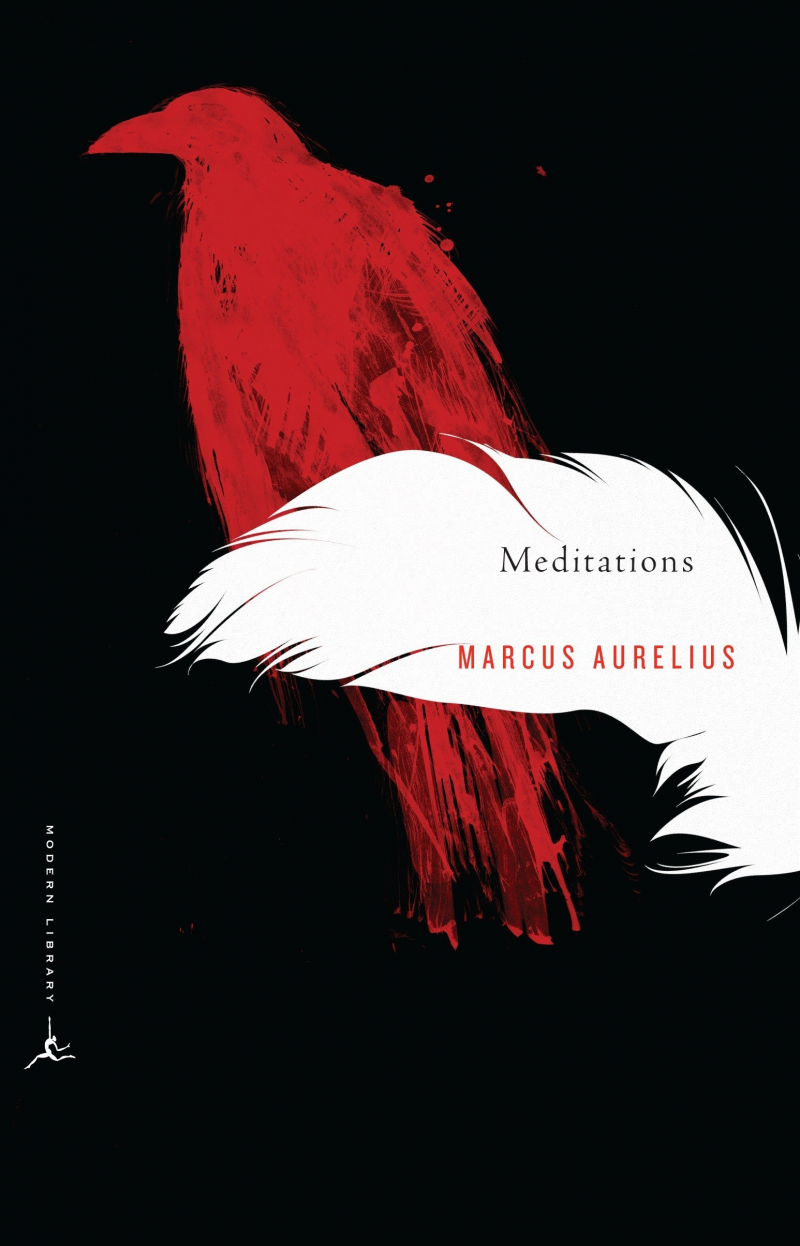
https://www.amazon.com/ 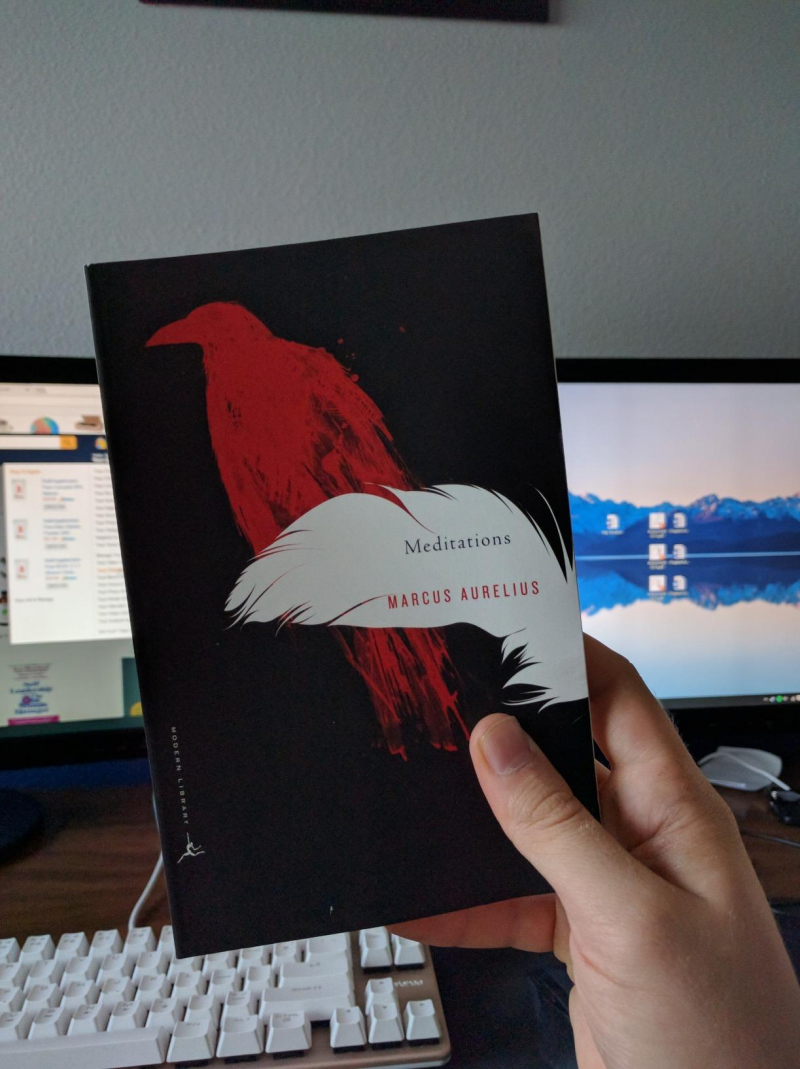
https://www.amazon.com/ -
A fantastic introduction to the art of negotiating and learning how to get more out of life. Diamond challenges the conventional wisdom of negotiating with power and logic. Instead, he contends that effective negotiation is based on understanding, valuing, and communicating with the person standing between you and your objectives. A few key takeaways include the importance of perseverance, understanding perceptions, framing and applying standards, being incremental, and trading items of unequal value.
Wharton Business School Professor and Pulitzer Prize winner Stuart Diamond demonstrates in this unique and revolutionary book, based on thirty years of research among forty thousand people in sixty countries, how emotional intelligence, perceptions, cultural diversity, and collaboration produce four times the value as old-school, conflictive, power, leverage, and logic.
Because negotiations underpin every human interaction, this immediately applicable advice applies to almost any situation: children, jobs, travel, shopping, business, politics, relationships, cultures, partners, and competitors. Until you see them, the tools are invisible. Then they're always there to help you solve problems and achieve your goals.
When you read Getting More: How You Can Negotiate to Succeed in Work and Life, you will learn about the following topics:
- The goal of bargaining
- The importance of perseverance
- How to Spot Common Enemies
- Emotions versus logic
- The importance of small talk
- Dealing with tough negotiators
- Being incremental and framing
- Identifying intangibles
Author: Stuart Diamond
Link to buy: https://www.amazon.com/Getting-More-Negotiate-Succeed-Work/dp/0307716902/
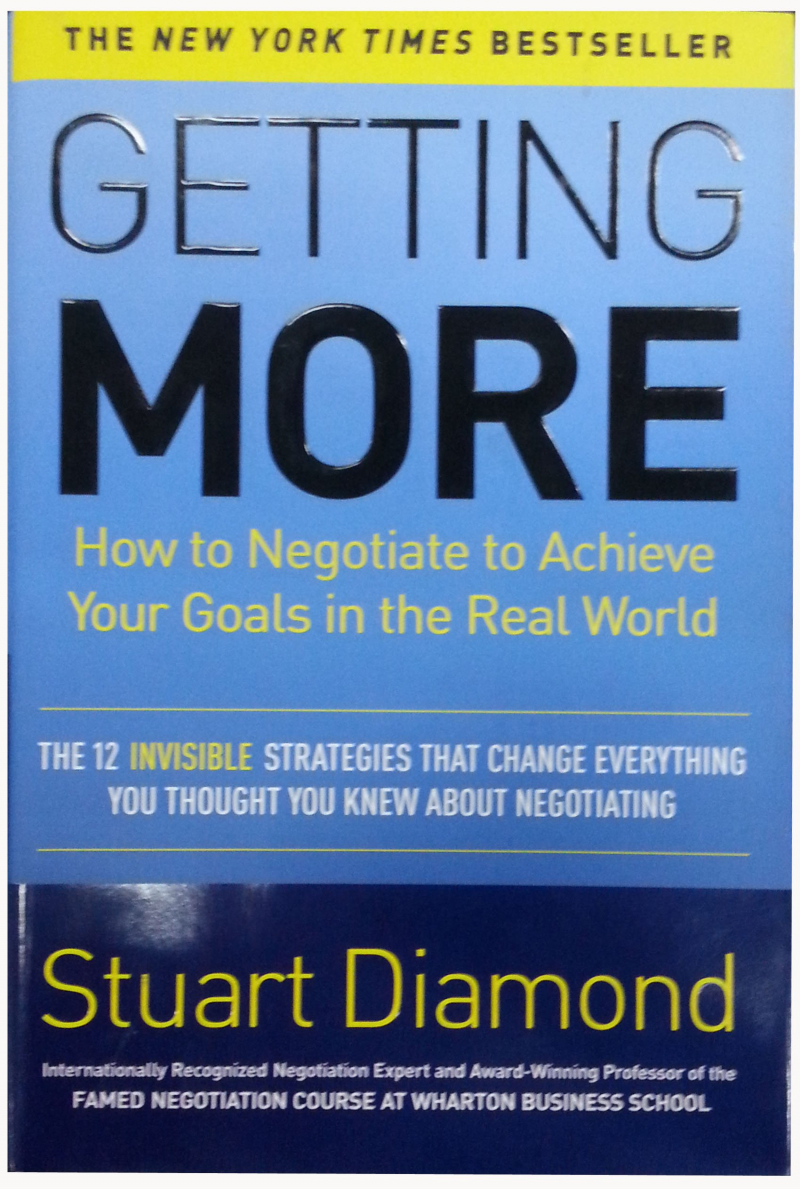
https://www.amazon.com/ 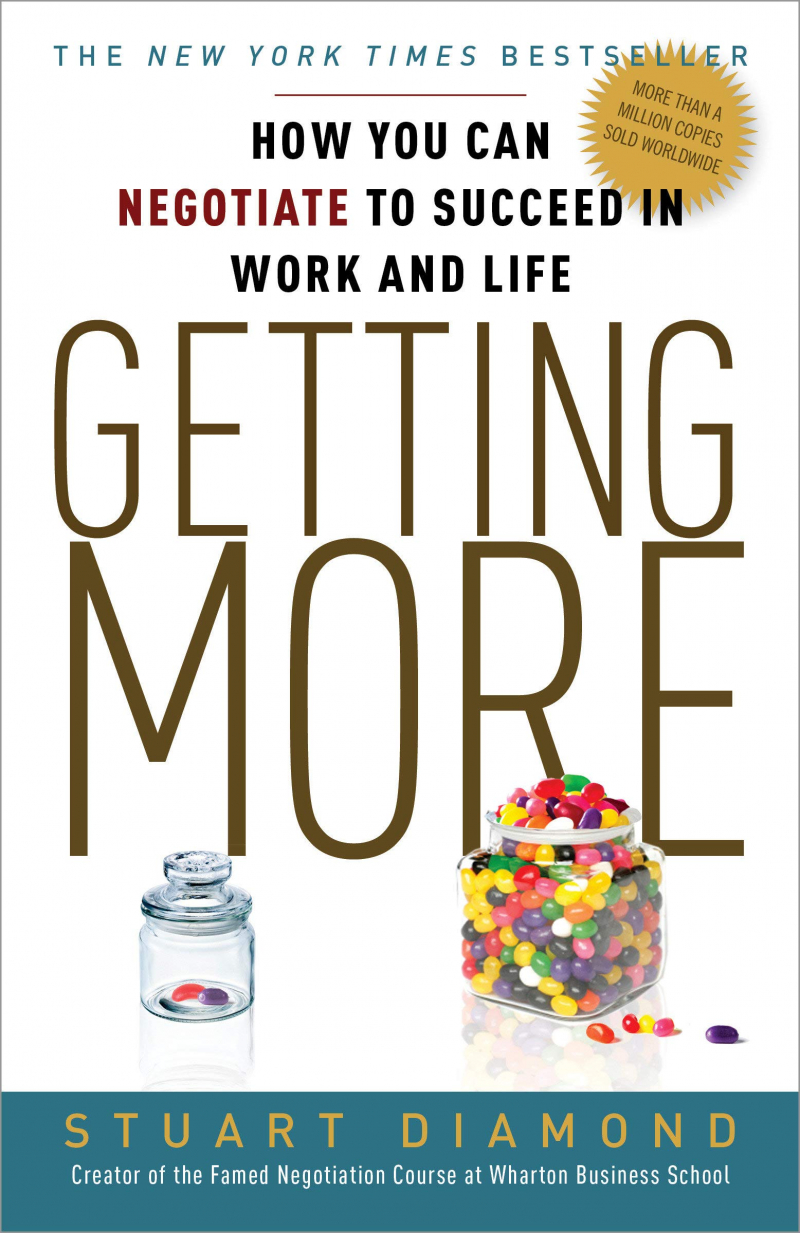
https://www.amazon.com/ -
Have you ever felt like you were stretched too thin? Have you ever felt both overworked and underutilized? Have you ever felt rushed but unproductive? Have you ever felt like other people's agendas were constantly taking over your time?
If you answered yes to any of these questions, the book Essentialism is the way out. Essentialism is more than just time management or a productivity technique. It is a systematic discipline for determining what is absolutely necessary and then eliminating everything else in order to make the greatest possible contribution to the things that truly matter.
The disciplined pursuit of less empowers you to reclaim control of your own choices about where to spend your precious time and energy by forcing you to apply more selective criteria for what is Essential—rather than giving others the implicit permission to choose for you.
Essentialism isn't just another thing; it's a completely new way of doing everything. It is about doing less but better in all aspects of your lives. Essentialism is a movement that has arrived.
You will learn about the following topics:
- The business fallacy
- The importance of contemplating life's brevity
- The truth about tradeoffs
- The importance of play
- How to Say No in a Respectful Manner
- Prioritization questions for effective prioritization
- The Routine's Power
Author: Greg Mckeown
Link to buy: https://www.amazon.com/Essentialism-Disciplined-Pursuit-Greg-McKeown-ebook/dp/B00G1J1D28/
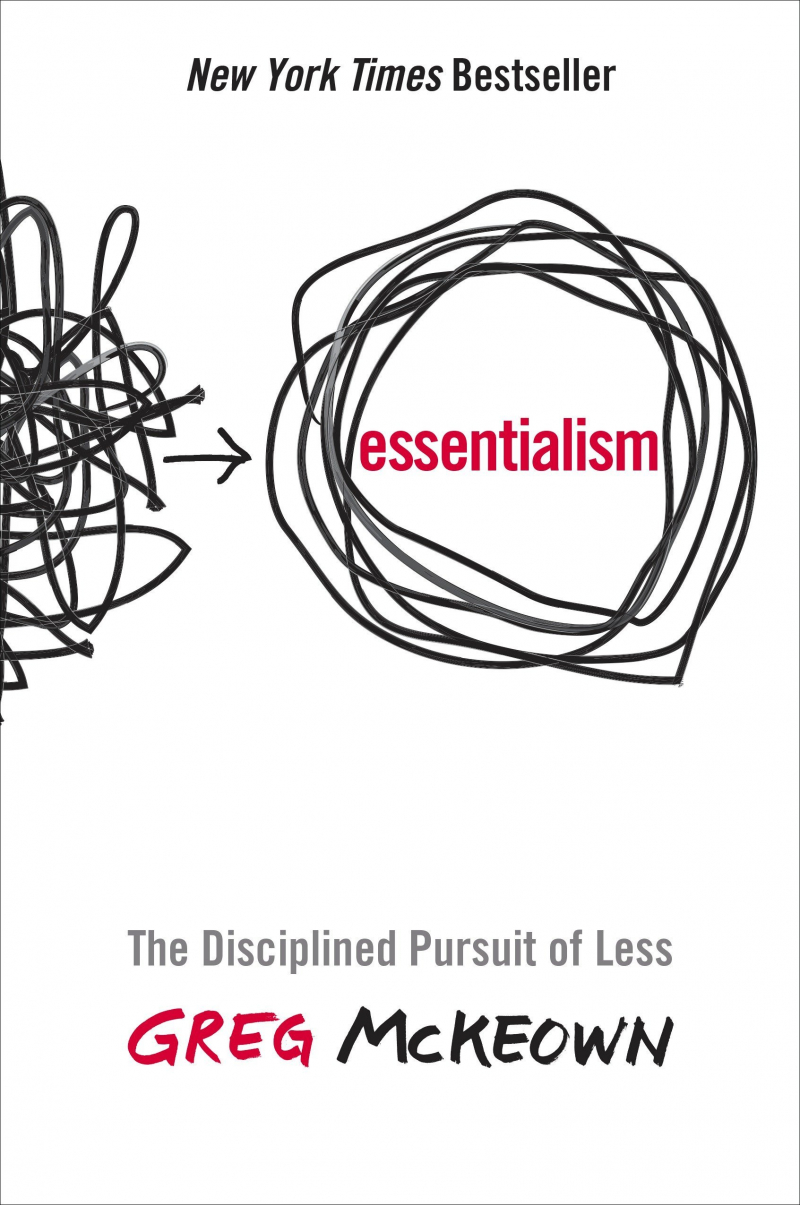
https://www.amazon.com/ 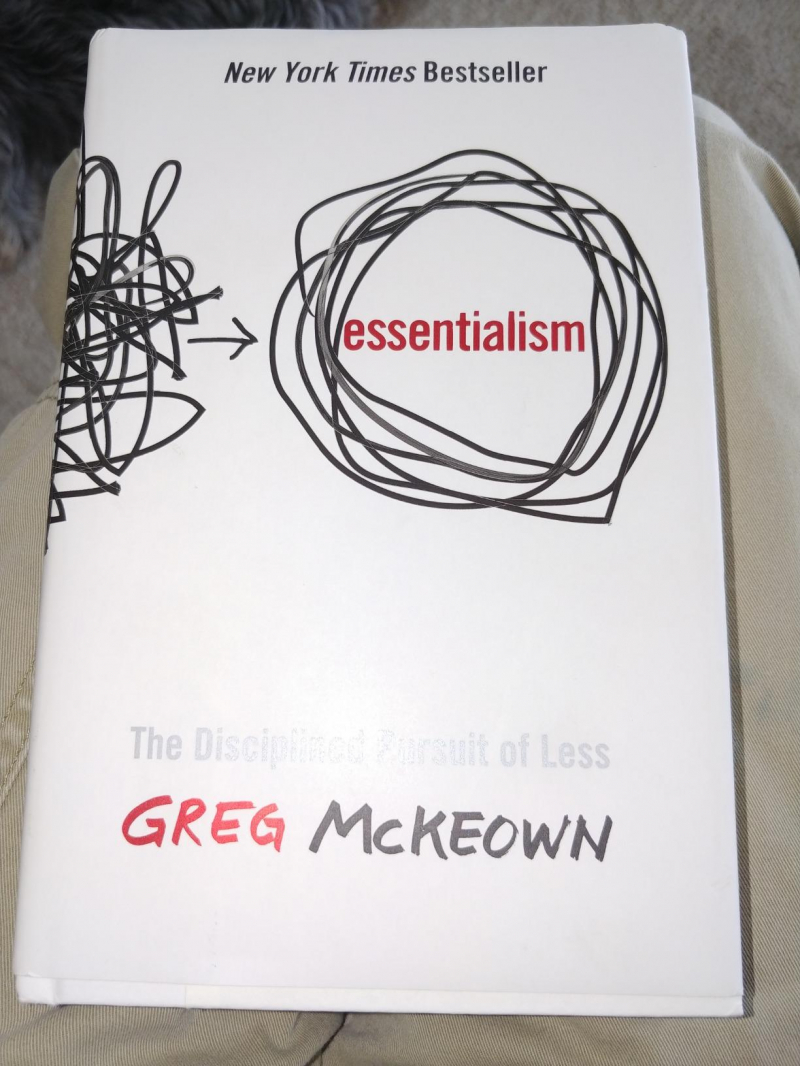
https://www.amazon.com/ -
Among the best books on decision making, A Random Walk Down Wall Street is a classic guide that combines history, economics, market theory, and behavioral finance to provide practical and actionable advice for investing and achieving financial independence. Malkiel's main message is unequivocal: start a consistent savings plan as soon as possible and invest the majority of your portfolio in low-cost, broad-based index funds.
You will learn about the following topics:
- How to Make Smart Investment Decisions
- Modern portfolio theory is one of the three primary investing theories.
- People are plagued by common biases.
- The Influence of Incentives
- What to do in an uncertain future
Princeton University's Chemical Bank Chairman's Professor of Economics is Burton G. Malkiel. "From Wall Street to the Great Wall," "Naked Economics," "The Random Walk Guide to Investing," and the mega-bestseller "A Random Walk Down Wall Street" are among his books.
Author: Burton Gordon Malkiel
Link to buy: https://www.amazon.com/Random-Walk-Down-Wall-Street/dp/0393038882/
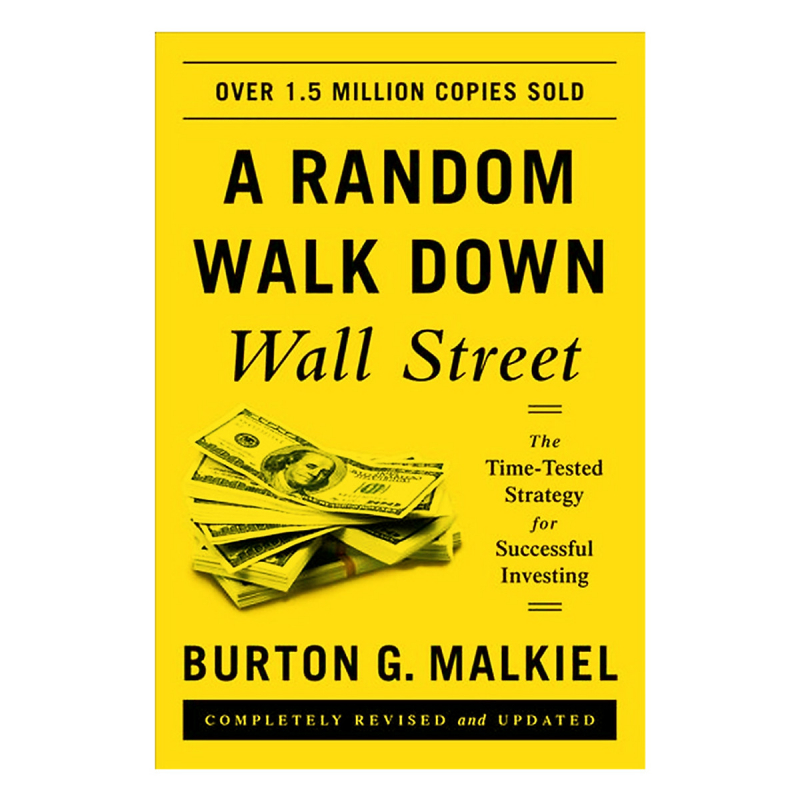
tiki.vn 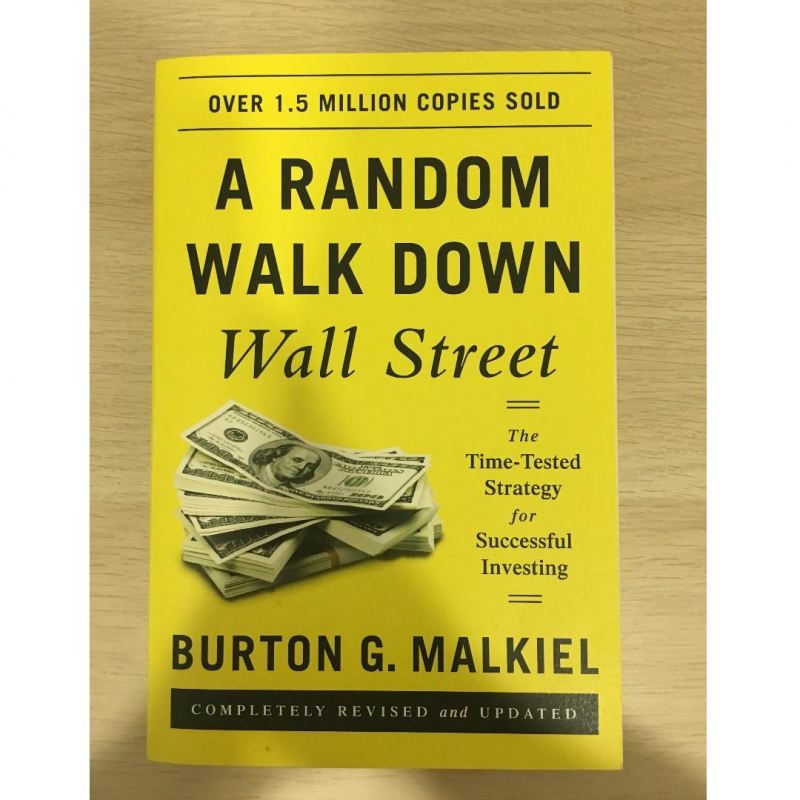
carousell.sg -
To travel into the Now, you must leave your analytical mind and its false created self, the ego, behind. You move quickly into a significantly higher altitude where you breathe lighter air from the very first page of Eckhart Tolle's extraordinary book. You become linked to the indestructible essence of your Being, "The eternal, ever present One Life beyond the myriad forms of life that are subject to birth and death." Although the journey is difficult, Eckhart Tolle guides you with simple language and a simple question-and-answer format.
Since its initial publication, The Power of Now has been a word-of-mouth phenomenon. It is one of those rare books that has the ability to create an experience in readers, one that can radically change their lives for the better.
Eckhart Tolle delves into the concepts of presence, thinking, and spirituality to help you understand what that means, how thinking and non-acceptance drive much of human pain, and how to live a life that reduces suffering.
You will learn about the following topics:
- How to Handle Unpleasant Situations
- Why is complaining harmful?
- How your mind affects your relationships
- The worth of acceptance
- Compassion's Strength
Author: Eckhart Tolle
Link to buy: https://www.amazon.com/Power-Now-Guide-Spiritual-Enlightenment-ebook/dp/B002361MLA/
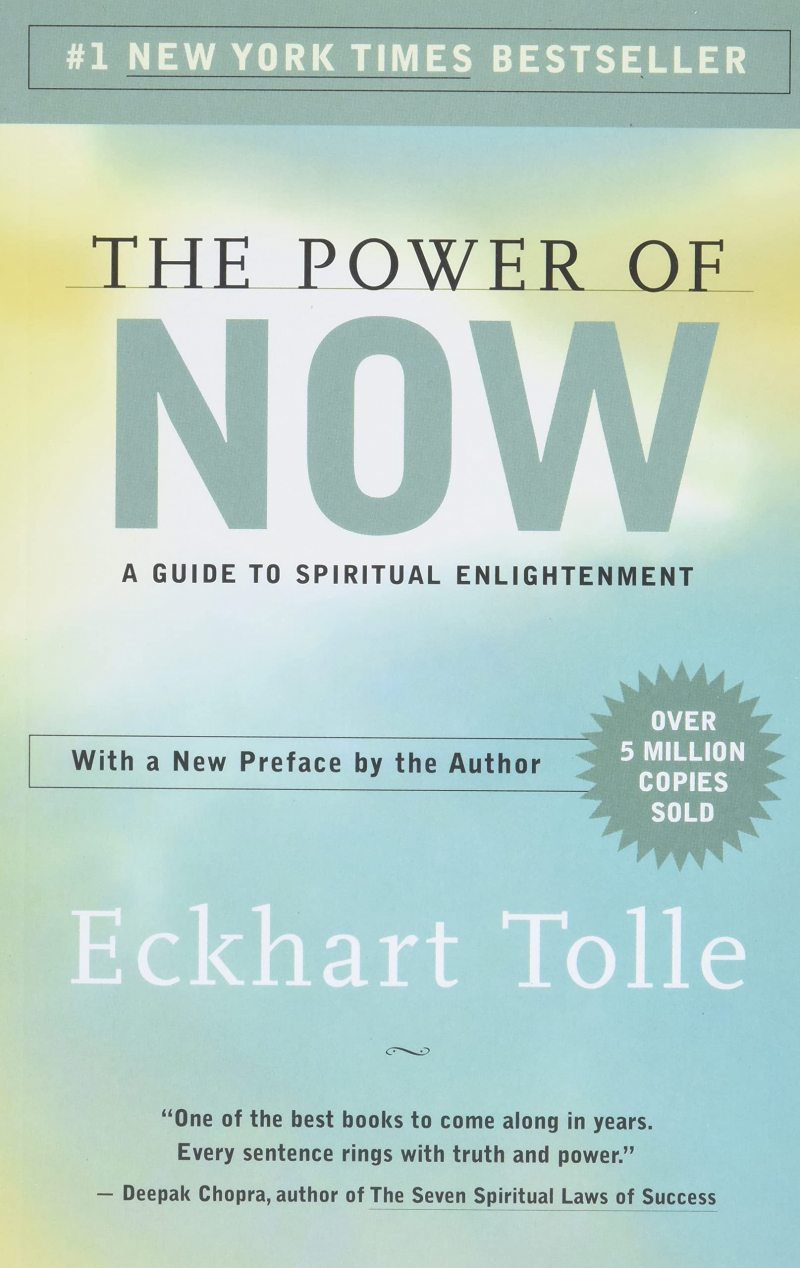
https://www.amazon.com/ 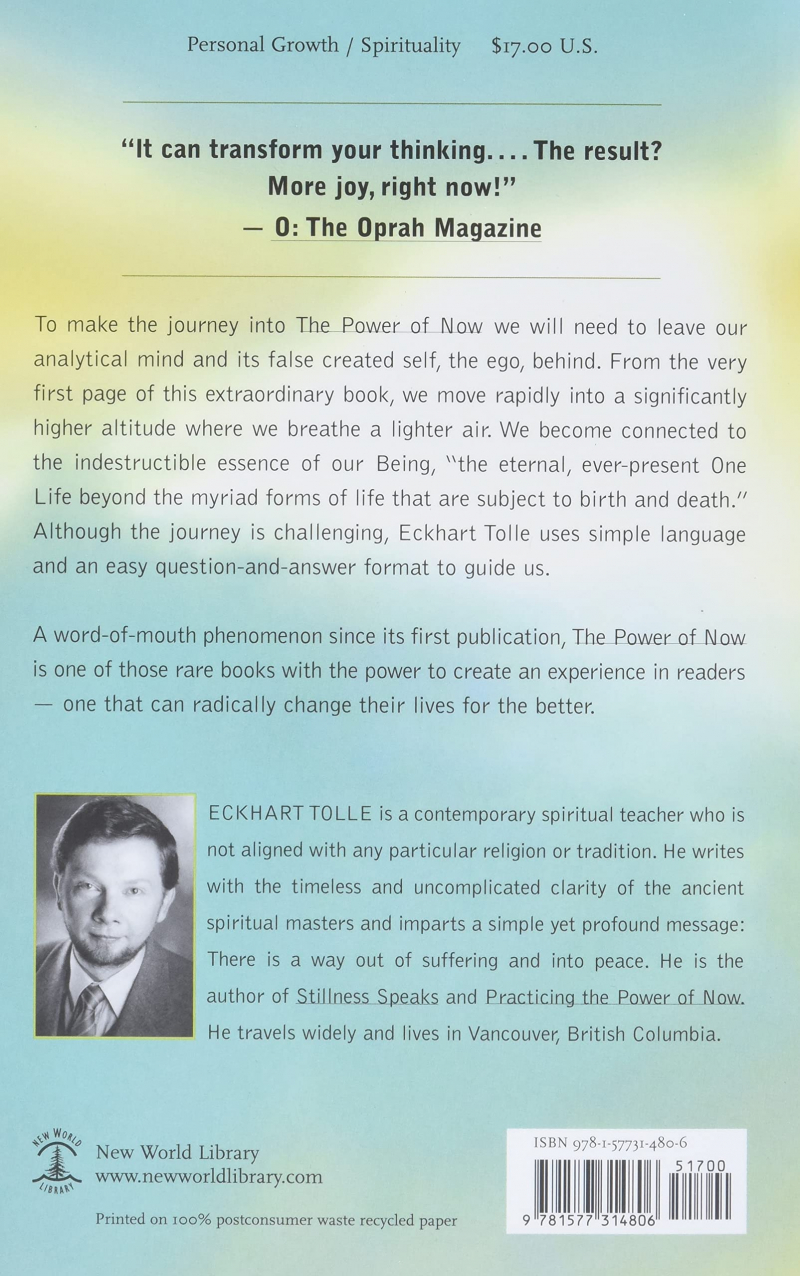
https://www.amazon.com/














